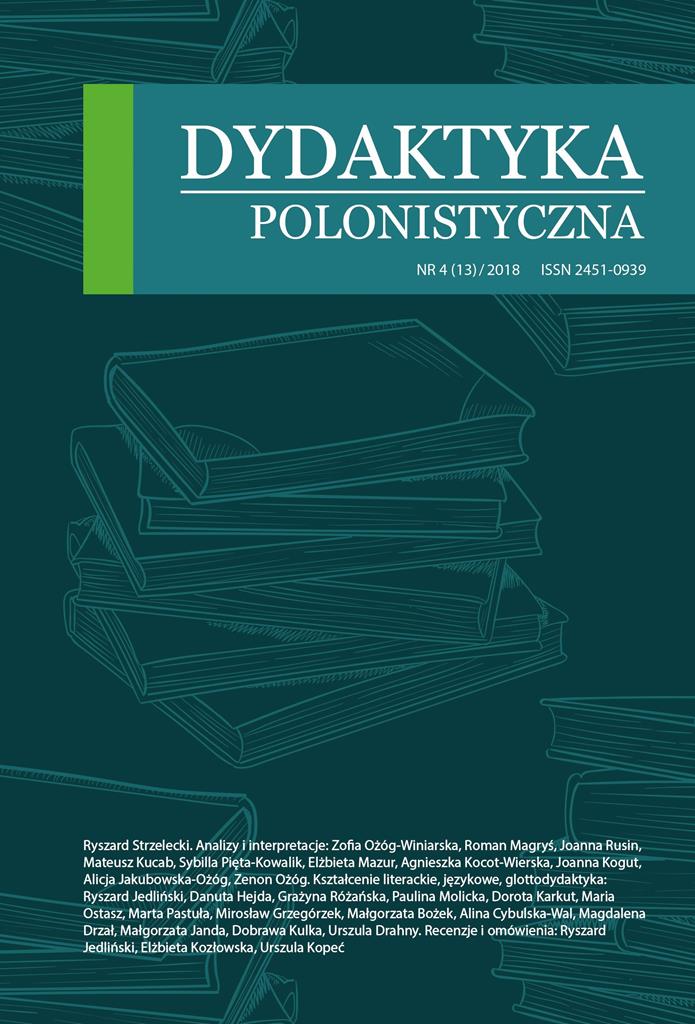In search of lost Eleusis. Shakespearean and Indian motifs in The Vampire by Władysław Stanisław Reymont
DOI:
https://doi.org/10.15584/dyd.pol.13.2018.5Keywords:
shakespearean and indian motifs, theatrum mundi, eleusis, novel, the tempest, onirismAbstract
The article is devoted to the less-known novel entitled Vampire by Władysław Stanisław Reymont, polish Nobel Prize Winner. It brings the subject of theatrical motifs and mechanism which have been used in the novel like dramatic dialogues and monologues, theatrum mundi theme. In the view of foregoing it has been proposed patters of subordination and guilt presented in the novel should be called the vampiric situations which is an appropriate term referring to relations between characters. The Vampire, alluding to William Shakespeare’s oeuvre (The Tempest in particular) and the culture of India, is another reflection of Reymont on the subject of great life’s celebration, searching for a place of one’s own in the world, articulating dreams and necessities.Downloads
Published
2018-12-15
How to Cite
Kucab, M. (2018). In search of lost Eleusis. Shakespearean and Indian motifs in The Vampire by Władysław Stanisław Reymont. Dydaktyka Polonistyczna, 13(4), 60–73. https://doi.org/10.15584/dyd.pol.13.2018.5
Issue
Section
ANALYSES AND INTERPRETATIONS


